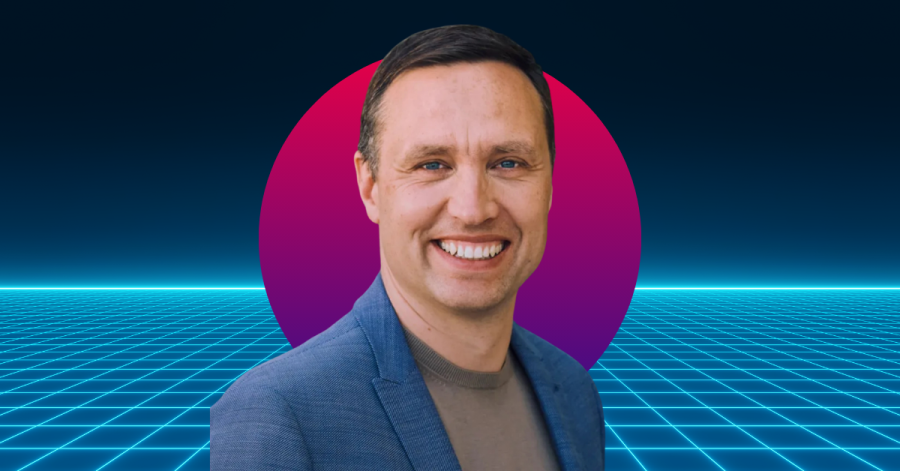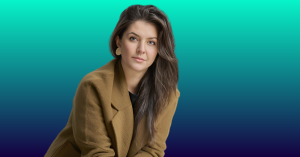In the startup ecosystem, asking investors for their take on various ventures and founders’ strategies has become usual. Some share it more willingly, some less. However, it is very seldom we see things other way around. Unfortunately so, as we believe many founders can bring great outsider (and domain) perspectives to the investors as well.
That’s why we wanted to give founders a chance to think like the person sitting on the other side of the deal! This is the first interview of the series covering how would it be to find yourself in a different pair of shoes. Founders, what would you do if you were trusted a fund?
Our first acting investor is Hubert Palán, founder and CEO of Productboard, the second Czech unicorn. Productboard is a customer-centric product management platform that helps teams get the right products to market faster. Over 6000 companies use Productboard to understand what users need, prioritize what to build next, and rally everyone around their roadmap…
Productboard has raised a total of $262 million in funding as of January 2024. It has offices in Prague and San Francisco, where Palán also lives. Before starting Productboard, Palán was VP of Product Management at GoodData, a leader in business intelligence and big data analytics.
What would be Hubert Palán investing in if he wasn’t a full-time CEO and founder?
“The craziest and unconventional ideas are the ideas that no one else is doing“
What would your investment thesis be if you were handed a VC fund today?
“I would definitely invest in an early-stage focus. Here’s the thing: You should invest in the things that you know are the best and the most. Being a founder gives you a unique understanding of the challenges of the early stage, like how you go from zero to one, how you drive innovation, and hire key talent early.
The second thing I know the best is software and collaborative tooling. So I would go there because basically, you want to be the most helpful at the most relevant. So early stage, collaborative, SaaS, a lot of applied AI probably, because it’s a big disruptive technology that can be applied to many industries.”
What’s one startup idea or sector you’ve always believed in but never had the resources to explore? Would you fund it if you were a VC?
“Personal CRM. There’s no CRM software that helps you manage personal relationships, your personal network, let you proactively nurture it. Maybe there are some startups, but I haven’t seen one that is doing it really well.“
What’s the craziest or most unconventional idea you’d back?
“The craziest and unconventional ideas are the ideas that no one else is doing. It’s not like something that is slightly better. It is a completely new category in a completely new space where there’s no competition. That’s the hardest. It’s difficult to pinpoint one here, and I’d back it only if the founder or the founders had a profound insight and experience in that problem, even though there’s no market validation. You need to be crazy enough to believe that you can create a whole new category. Productboard has been a crazy example of it. You know, you’re just fighting against the odds, and no one believes you.”
Imagine you could create your dream portfolio as a VC. Which three startups—anywhere in the world—would you include and why?
“I don’t know if I have the specific names of the companies right now, but I would look at what is the biggest, fastest growing market with the biggest opportunity and the best teams. Crypto seems to be that interesting trade opportunity, in the U. S. Bitcoin even has a chance to become the dominant currency compared to the dollar.”
“Do I believe this person can execute it better than I can?”
If a founder pitched to you with an idea similar to your own business, what would you look for to decide whether to invest?
“The question is: Do I believe that this person can execute it better than I can? In Productboard, we help create a world full of extraordinary products, and we help product managers make direct decisions based on understanding of customers. So if somebody was really after the same mission, and if I felt like they have the skills, the grit, the resilience to execute that mission, then I would invest to be part of that mission, even if it means sharing the success with someone else.“
Which industries or niches in CEE, in your opinion, are currently overlooked but deserve more investment?
“I don’t think that CEE is relevant; any region separately isn’t. You should think globally. Do you have the talent and experience in a specific world space? Are there people who, through their past experiences, became experts in a specific pain point or market? That’s what’s important, no matter where you come from. Of course, if you are doing groceries or transportation or something physical, then yes, but that’s not how I think.
Are there regional startups or founders you admire that you would have loved to back if you were a VC? Why?
“I think that what Mews is doing in the hotel industry is a great example of a global startup that started in the CEE region, demonstrating that geographical origin is irrelevant if you aim high enough. Richard Valtr, its founder, is a man with clear vision; above that, he’s a nice guy.“
What’s one thing you’d do differently as a VC to support founders better?
“I could help the founders with outlining content or giving them very precise guidance on structures, templates, decision frameworks. And I don’t mean just giving a pontificate or showing up at a board meeting or giving very high-level advisory, but I think actually doing it. Finding three or four hours in your schedule and doing once a quarter a really deep workshop one on one with the founder where you can actually help uncover some insight is so important and helpful.“







